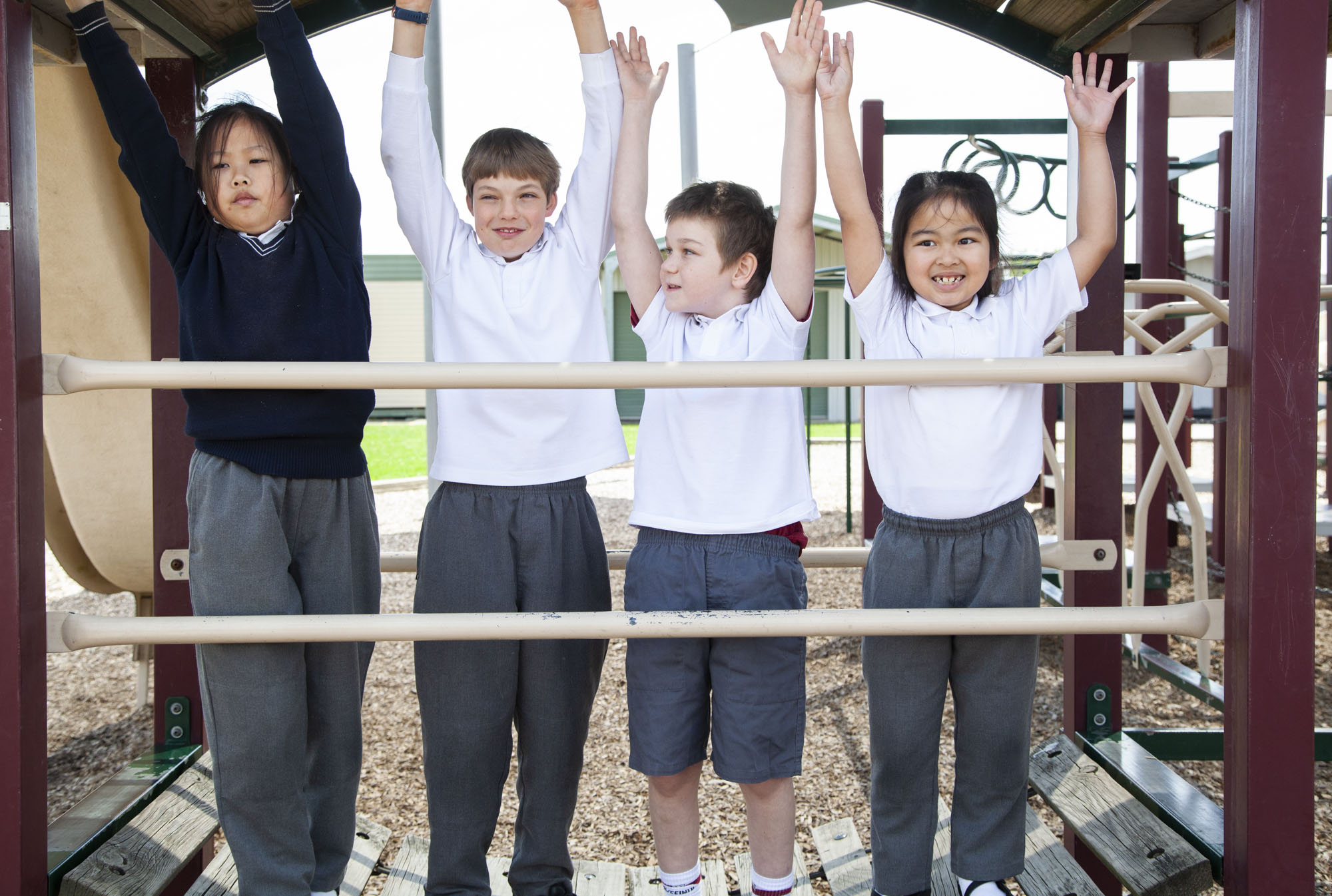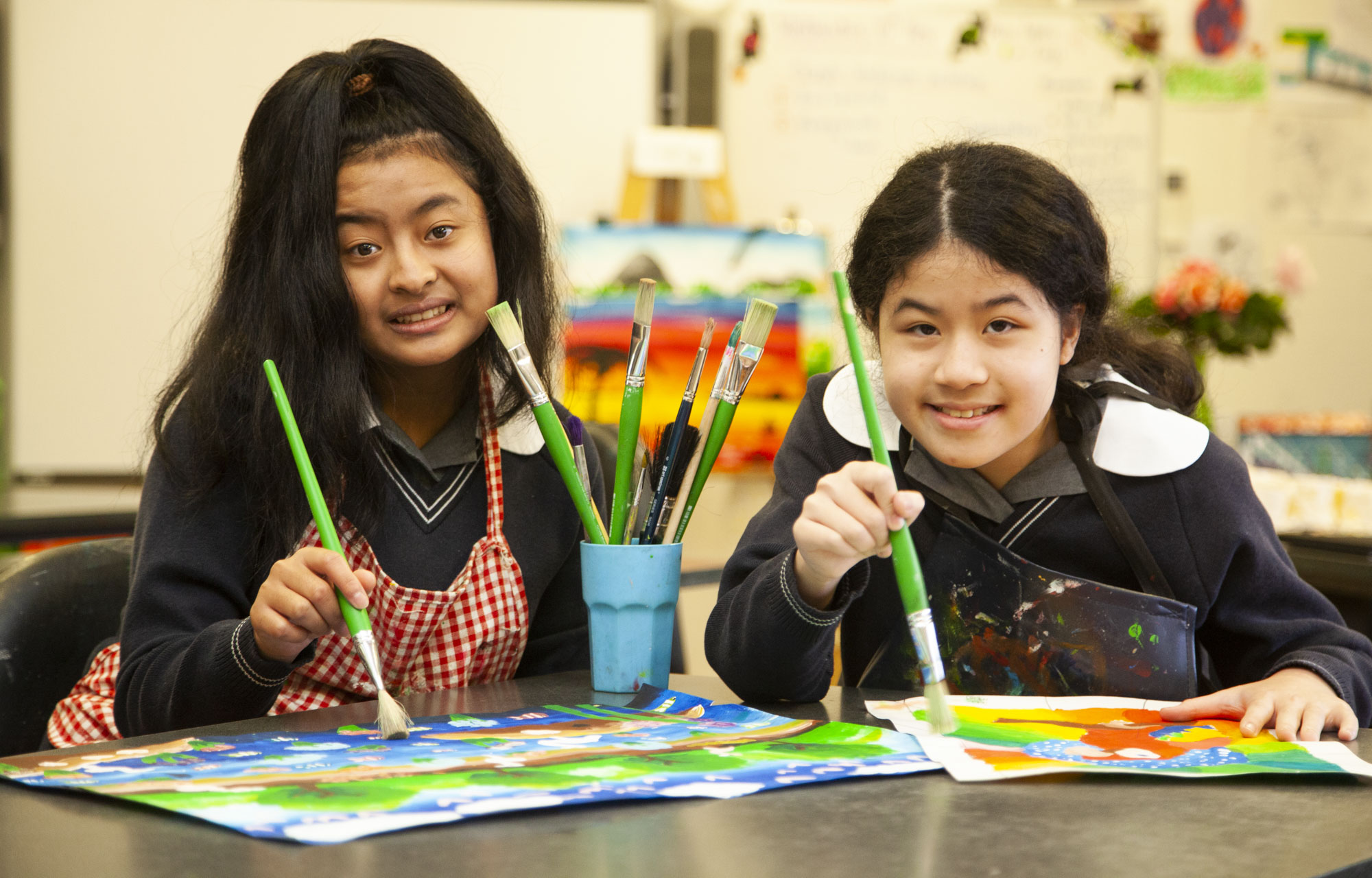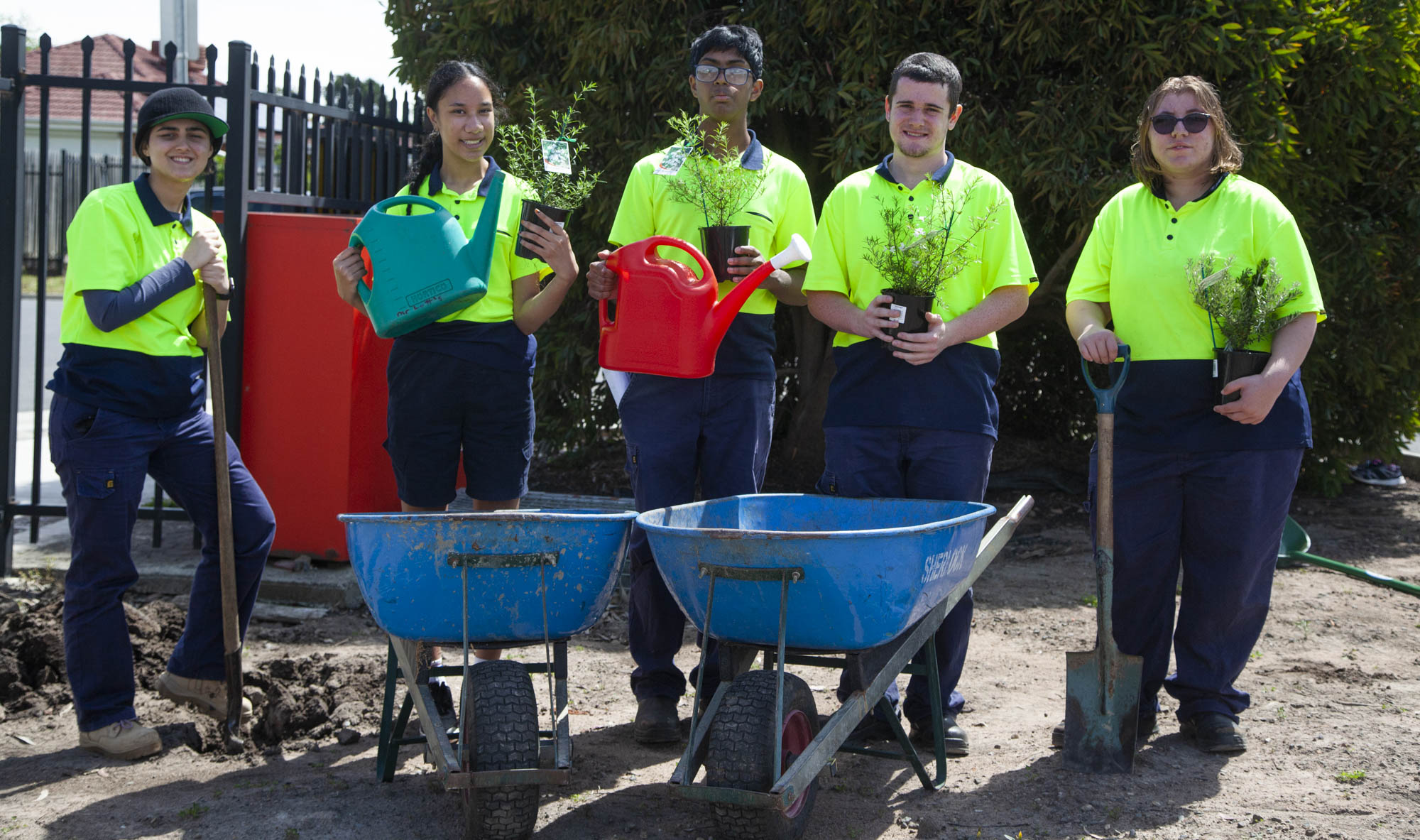How We Teach & Support
It’s the little things we do to support an individualised learning program that get us the big results
How we teach and support
Our entire teaching staff is dedicated to the detail and we want to ensure every child achieves to their own potential.
This means ensuring we have a robust system of teaching and support that not only caters to the average (or middle student) – but also the advanced student or the student that needs some extra support.
For learning to take place we need to ensure that every child feels safe, happy and confident within themselves – and so a huge emphasis is placed on a strong wellbeing and support program that achieves just that!
Student Support Services
CLINICAL SERVICES
The Emerson Clinical Services team comprises of speech pathology and psychology. Our speech pathology program works alongside teachers in whole class programs for play and social skills, language development and literacy. Regular individual speech pathology sessions are also offered by our speech pathologists and through our speech pathology assistance program.
Clinical Services psychology supports the Program for Students with Disability funding application process and offers counselling in some circumstances. In other instances, we work with families to access the most appropriate supports. Clinical Services has a lead role in liaison and consultation with local services to ensure an integrated and community based approach for the mental health and well being of our students. We have excellent collaborative relationships with a number of private practitioners, government and non-government organizations alike, coordinating regular care team meetings between Emerson staff and external services.
Clinical Services further supports the well being and mental health of our students though the whole class program – The Zones of Regulation –a curriculum designed to foster self regulation and emotional control.
We also enjoy sharing our knowledge and experience regarding communication, mental health and well being through professional learning to education staff.
VOCATIONAL PATHWAYS
Once students get to Senior School it is important that we start to think about transition from school.
The Vocational Pathways team is an important part of the Emerson Senior School and assists students with the following:
- Careers counselling (students and parents)
- Work experience
- Resume writing
- Preparation for work
- Mock interviews
- Industry tours
- Career related excursions and expo’s
Emerson have a website which gives students information regarding careers. This is used extensively in the student’s final year. The website is www.emersoncareers.com.au
Emerson offers many opportunities to our Senior Students including:
Vocational Education and Training (VET) programs
Delivered to secondary school students, designed to expand opportunities and pathways for students and improve educational outcomes. VET also addresses the skills and employment needs of industry in Victoria.
In Victoria, nationally recognised VET qualifications can be undertaken by school students to contribute towards the completion of a Senior secondary certificate, the Victorian Certificate of Applied Learning (VCAL).
School Based Apprenticeships and Traineeship (SBATs)
An SBAT offers students the option of combining a Senior secondary program with part-time employment and training. The program is undertaken under a Training Contract with an employer. A Training Plan signed by the school is formally lodged with the Australian Apprenticeship Support Network (AASN). It leads to a nationally recognised qualification. An SBAT is an integral part of the student’s Senior secondary learning program and study timetable. Regular school attendance is combined with a minimum of one timetabled day a week of employment and/or structured training. The time requirements of work and training for the SBAT are undertaken at an average of 13 hours a week over each four month period each year. The VRQA is responsible for regulating the minimum hours per week for employment and training for SBATs.
For further information contact the Vocational Pathways team at Emerson School, located at the Jnr/Snr Campus.
Moving Schools
Transition typically refers to students moving from one school sector to another, such as from primary to middle school, and from middle school to secondary college or high school. Emerson students progress from one section to the next, for example, from Junior School to Middle School and middle School to Senior School.
The principles underlying a positive start to school; ways to meaningfully involve children, families, and educators in the transition process; and the importance of community engagement are key components to consider when designing and supporting effective transition.
- Pre-existing relationships when developing new ones.
- Local knowledge about the needs of local children and their families (e.g., common languages spoken other than English).
- Ensuring, rather than assuming that all relevant information is provided to and understood by families.
- Allowing programmes to evolve in response to the needs of families, individual children, and school staff, as well as in terms of logistics, dates, etc.
- Keeping in mind that the programme should be part of, rather than an addition to, what is already being done.
The section leaders of the Junior, Middle and Senior School determine transition dates for the various sections and strive to make the transition process as smooth as possible with the least amount of disruption and anxiety.
Year 6 to Year 7 Transition
Student Leadership
At Emerson we value Student Voice and are always providing opportunities for all our students to advocate for themselves and others.
The Student Leadership program empowers our school prefects to contribute ideas to improve our school. In the past students have initiated new programs, school uniforms and various fundraising activities.
Currently we have 10 different categories of student- leadership positions on offer throughout the year. They include School Captains, House Captains, Bus Captains, Performing Arts Captains, Sports Captains Bus Captains, Flag Captains, Sustainability Captains and Kindness Captain.
In 2021 thirty-six student leaders were presented with their badges by Mr Ian Owens at our annual Investiture Ceremony.
English as an Additional Language
Who is EAL for?
- beginning school with little, some or no exposure to English
- come from a language background other than English
- beginning school in Australia at any year level
- born overseas or in Australia
- speak a language other than English at home as their main language
What is EAL used for:
The goal of an EAL program is to improve the students’ level of English skills and can include-conversational English
- Grammar
- Reading
- Comprehension
- Listening
- Writing
- Vocabulary building
- The language of Maths or other curriculum areas
How does it work:
Junior School:
Working on story telling by
- Developing a program we have named Talk for Life based on Talk for Writing by Pie Corbett
- Immersing them in hands on activities
- Practicing phonics and extending vocabulary through games
- Improvising on texts to create their own factual and fictional texts
Middle School:
- Improving sight vocabulary and blending skills through games
- Developing grammar skills through texts
- Using listening and speaking games to encourage discussions
- Using our Talk for Life program to complete writing tasks
Senior School:
- Develop reading skills using the Learners Driving Manual
- Unpacking vocabulary specific to our road rules
- Improving sight words through games
- Using communicative games to increase confidence in speaking
- Looking at the language of Maths and building on basic concept
Health and Wellbeing
Health & Wellbeing Topic Summary
Hygiene
Lessons revolve around the consequences of poor hygiene and what is considered a healthy hygiene routine.
Alcohol & Cigarettes
Students should be taught how to stay safe when partying and how to keep their friends safe, and the health consequences of excessive alcohol intake. The dangers of smoking should be included, for example, a lesson on the different chemicals in a cigarette and how they harm your body.
Respect
Students should help define the word respect and what respect looks like. This gives a background when moving onto respectful relationships.
Healthy/Respectful Relationships
Students should be working towards identifying what a healthy/respectful relationship looks like as well as unhealthy/disrespectful relationships. Relationships include friendships and romantic/intimate relationships. Students should be learning how they should be treated in different relationships as well as how they should treat others. Scenarios work best for this topic.
Consent
Consent should be taught explicitly. Consent ranges from holding hands to sex. Students should be working towards respecting the rights and decisions of others. Lessons are based around permission seeking and that if someone’s response is not a clear yes, then it is a no. The legalities surrounding consent may be taught but not to be used as a reason to ask for consent (for example, you need to ask for consent so you do not get in trouble by police). Rather, tying it back to the idea that asking for consent is a characteristic of a healthy relationship (for example, asking for consent shows respect and is a part of being in a healthy relationship).
Gender & Identity
Learning activities within this topic assist students to challenge stereotypes and critique the influence of gender norms on attitudes and behaviour. They learn about key issues relating to human rights and gender identity, and focus on the importance of respect within relationships. The activities promote respect for diversity and difference.
Positive Gender Relations
Learning activities within this topic focus on building an understanding of the effects of gender-based violence and focus on the standards associated with respectful relationships. Students develop the skills needed to solve problems, set boundaries within relationships, and play an active role within the prevention of gender-based violence. They develop peer support and help-seeking skills that can be applied in response to situations involving gender-based violence in family, peer, community or on-line relationships.
Emotional Literacy
Emotional literacy can be defined as the ability to understand ourselves and other people. It includes the ability to understand, express and manage our own emotions, build empathy, and to respond appropriately to the emotions of others. Building a large vocabulary for emotions helps to increase emotional literacy and build self-awareness and empathy for others.
Problem Solving
Problem-solving skills are an important part of the coping repertoire. The classroom program provides a number of learning activities to develop students’ problem-solving skills. The activities in the program assist students to develop their critical and creative thinking skills, and to apply them to scenarios exploring personal, social and ethical dilemmas.
Stress Management
Children and young people experience a range of personal, social and work-related stressors in their everyday lives. Activities within this topic have an explicit focus on teaching positive approaches to stress management. Assisting students to recognise their personal signs and symptoms of stress, and to develop strategies that will help them to deal with stress effectively, will help students cope with future challenges. The activities focus on the ways in which self-calming strategies can be used to manage stressful situations.
Help Seeking
Learning activities in this topic area are designed to help students discuss the importance of seeking help and providing peer support when dealing with problems that are too big to solve alone. This helps to normalise and destigmatise help-seeking behaviour. Scenario-based activities help students identify situations in which help should be sought, identify trusted sources of help, and practice seeking help from peers and adults.
Social Media
Students should be taught about responsible social media use. Lessons can touch on the issues such as social media addiction and how apps are designed to keep you on for as long as possible, what students see on social media and how real it is, and that how we treat people in person should also be the same as how we treat people online.
Sleep
Students should be reminded and made aware of the importance of sleep and its impact on their health and wellbeing.
Diet
Students should be reminded of what a healthy diet looks like and how it benefits their health & wellbeing. Can also cover the dangers of a high sugar diet.
Vocational Pathways
Once students get to Senior School it is important that we start to think about transition from school.
The Vocational Pathways team is an important part of the Emerson Senior School and assists students with the following:
- Careers counselling (students and parents)
- Work experience
- Resume writing
- Preparation for work
- Mock interviews
- Industry tours
- Career related excursions and expo’s
Emerson have a website which gives students information regarding careers. This is used extensively in the student’s final year. The website is www.emersoncareers.com.au
Emerson offers many opportunities to our Senior Students including:
Vocational Education and Training (VET) programs
Delivered to secondary school students, designed to expand opportunities and pathways for students and improve educational outcomes. VET also addresses the skills and employment needs of industry in Victoria.
In Victoria, nationally recognised VET qualifications can be undertaken by school students to contribute towards the completion of a Senior secondary certificate, the Victorian Certificate of Applied Learning (VCAL).
School Based Apprenticeships and Traineeship (SBATs)
An SBAT offers students the option of combining a Senior secondary program with part-time employment and training. The program is undertaken under a Training Contract with an employer. A Training Plan signed by the school is formally lodged with the Australian Apprenticeship Support Network (AASN). It leads to a nationally recognised qualification. An SBAT is an integral part of the student’s Senior secondary learning program and study timetable. Regular school attendance is combined with a minimum of one timetabled day a week of employment and/or structured training. The time requirements of work and training for the SBAT are undertaken at an average of 13 hours a week over each four month period each year. The VRQA is responsible for regulating the minimum hours per week for employment and training for SBATs.
For further information contact the Vocational Pathways team at Emerson School, located at the Jnr/Snr Campus.
VISIT UPSCHOOL →
Learn Online
Upschool
A Community Resource by Emerson School
One of the foundations of strong communities with healthy people (both mind and body) is access to education.
This free and growing resource is our way of sharing positive and inspiring messages that we feel will have a direct and positive impact on our community.
Something in here for all ages
A Word From Our Parents
Thank you for the amazing care, education and life skills you have provided Liam. The moment we walked through the doors in 2009, I knew we were ‘home’ and had found the place for Liam to grow. Thank you for taking my little bud and helping him grow and blossom, ready to be a working man next year.

Online Tour
The best way to start learning about us. We have professionally produced dozens of videos showcasing our amazing school

Book a School Tour
The best way to meet us! We can show you around our beautiful school and answer any specific questions you have.

Upschool
UpSchool is a free and growing resource and our way of sharing positive and inspiring messages with our community.
![]()
Website design, graphic, videos & photography by Digital Schools | www.digitalschools.com.au | Copyright Digital Schools. All Rights Reserved

